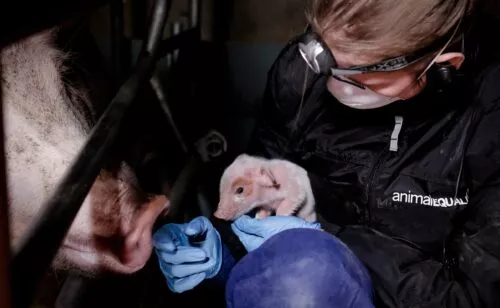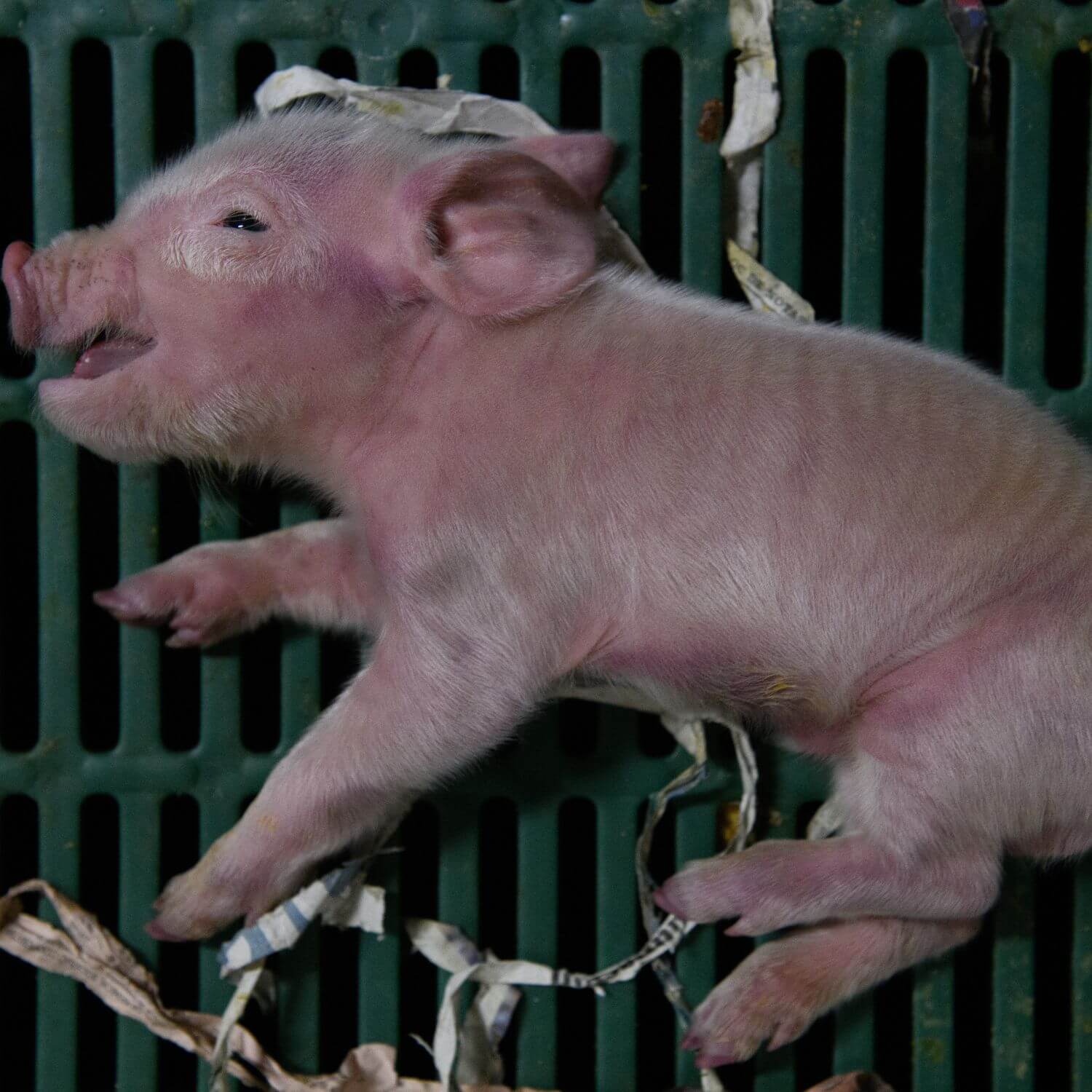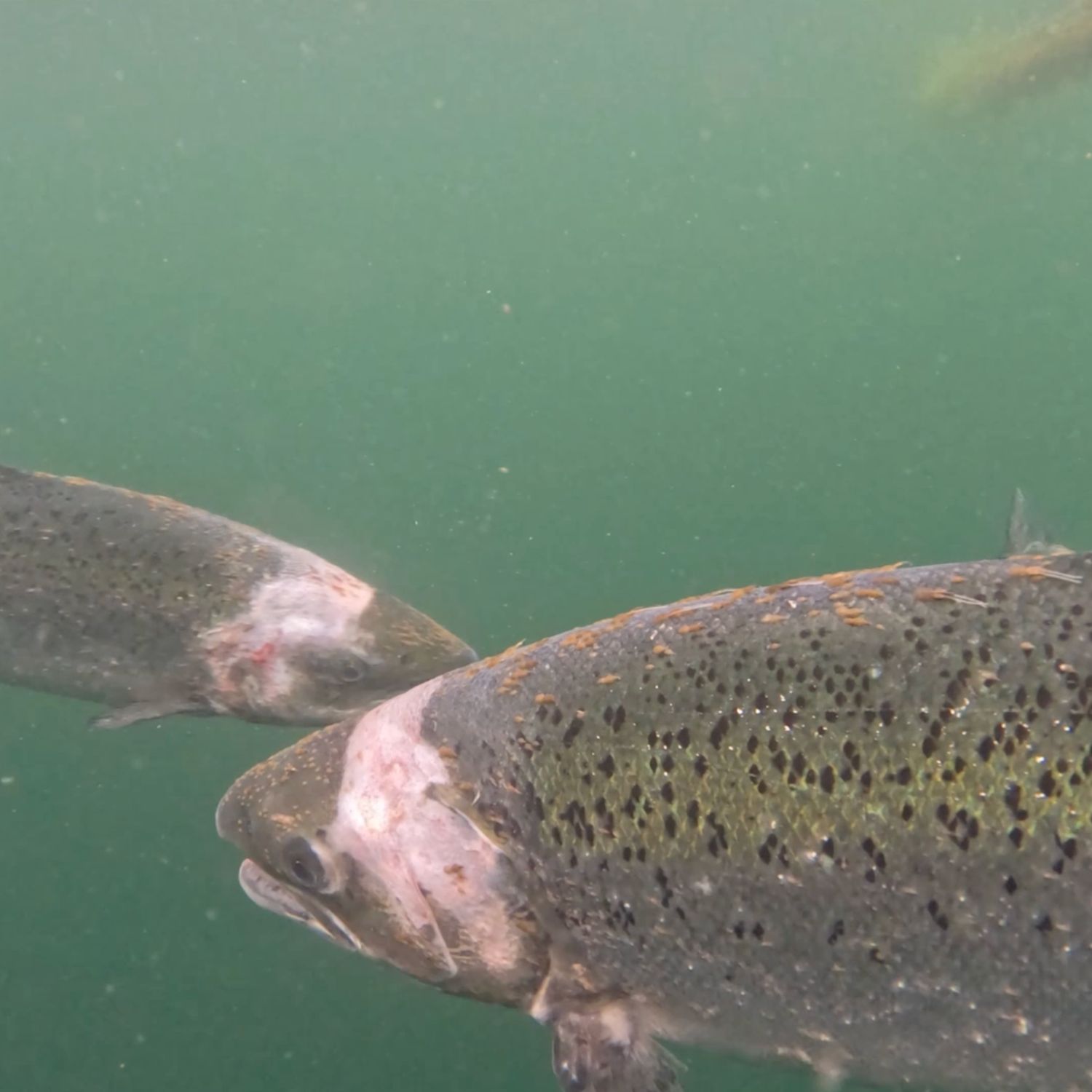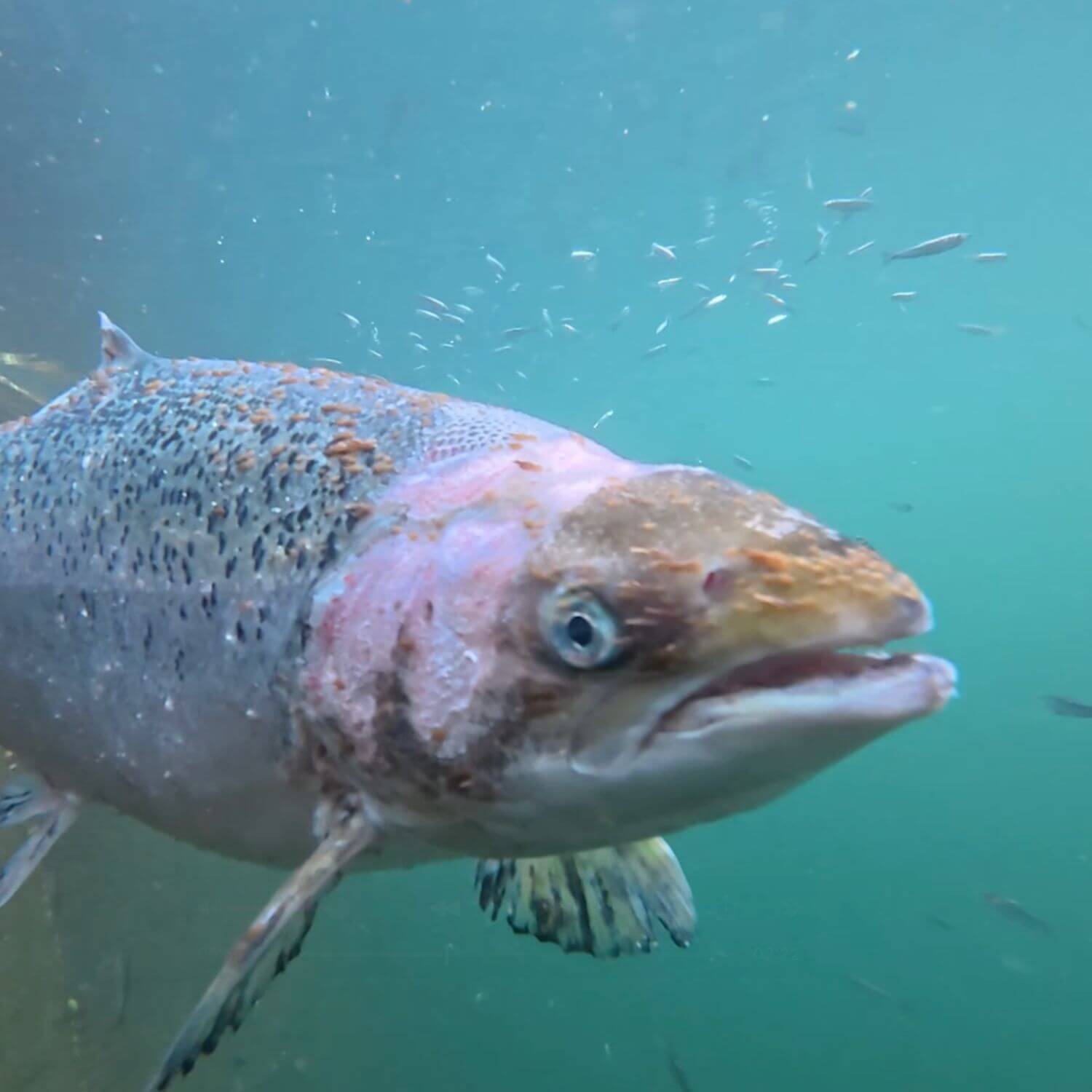Death rate on Scottish salmon farms worst in 35 years
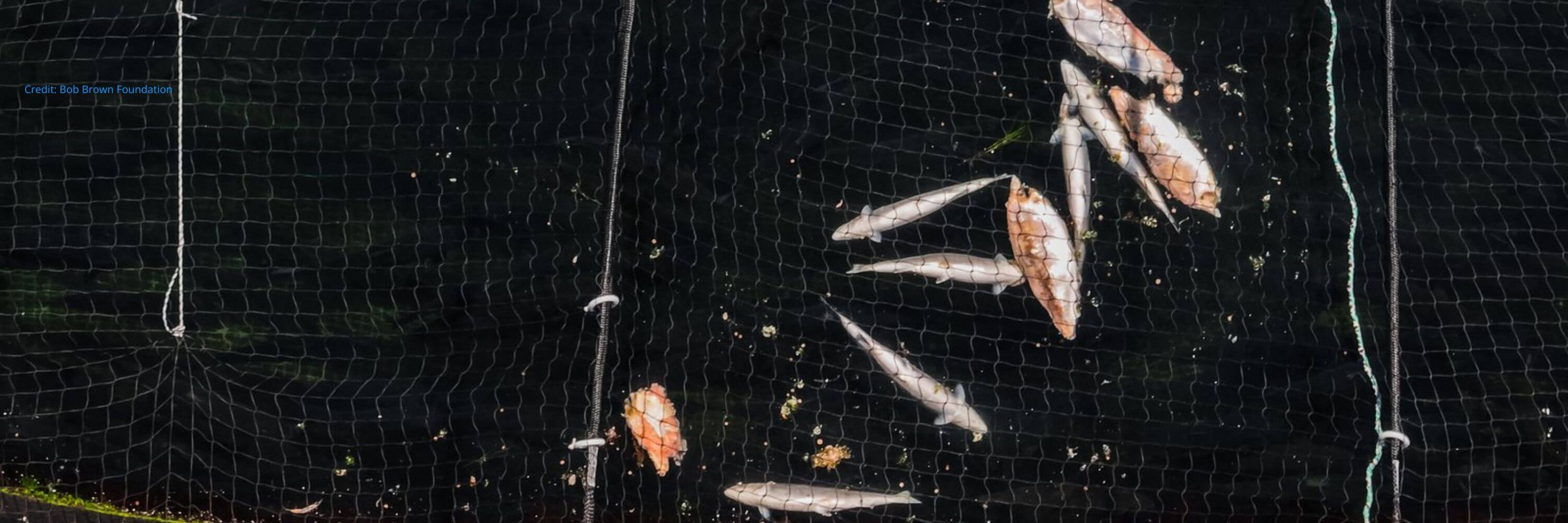

The latest Scottish Salmon Farm Production Survey shows that four in ten salmon die at sea in Scotland, the highest figure since 1989.
That production can be so high, yet survival rate so low can be explained by the way data is recorded and the fact that farmed Scottish salmon spend around 18 months in the sea. The data in this new report is for fish that were first put to sea in 2022.
Millions of salmon die each year due to lice infestations, jellyfish and algal blooms, disease outbreaks, warming waters, violent industry ‘treatments’, predation, and rough weather. Typically the autumn is when the worst death rates are seen.
This year, a number of individual fish farms have seen shockingly high death rates:
- Bay of Holland saw a mortality rate of 40.6% (January 2025)
- Meall Mhor saw a mortality rate of 40.2% (June 2025)
- Muck saw a mortality rate of 33.7% (July 2025).
In November 2024, Invertote and Muck experienced a dramatic number of deaths – a total of 194,000 – due to string jellyfish (November 2024)
This is certainly no cause for celebration, it’s a national scandal. Nearly four out of every ten salmon entering the sea cages died – this is an undeniable crisis.
-Abigail Penny, Executive Director of Animal Equality UK
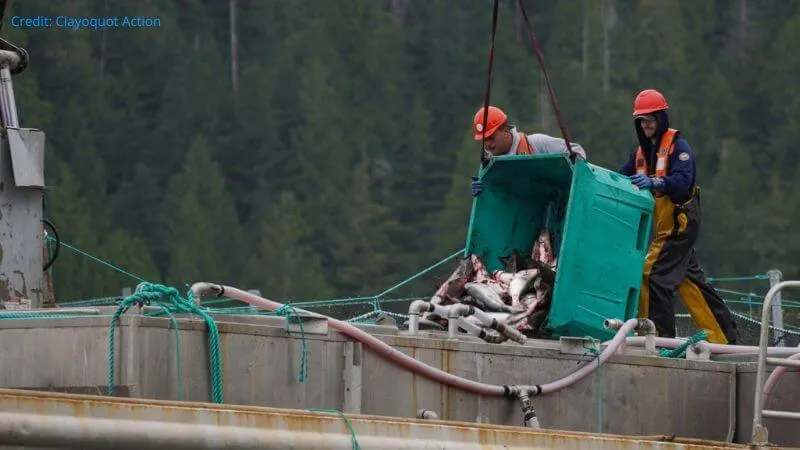
Not the full facts
And these figures don’t even touch the surface. This data does not include the millions of ‘cleanerfish’ who die each year. These animals are bred or taken from the wild and dumped into sea cages to eat the lice off the salmon, since lice infestations are rife across Scottish salmon farms. There is currently no mandated reporting scheme for the number of ‘cleanerfish’ who are exploited and die on salmon farms in Scotland, so the true scale of their suffering is an industry secret.
The data also fails to include the millions more juvenile salmon who perish in freshwater sites and hatcheries, like Applecross Hatchery, that has seen two million salmon die so far this year. Many animals die in on-land hatcheries, due to mechanical failure or worker mistakes – global reports evidence examples of hundreds of thousands of fish dying from a lack of oxygen in tanks, too much acid in the water, tank explosions, and more.
Scottish Government Committee concerned by “slow rate of progress”
A Scottish Parliamentary Rural Affairs and Islands Committee conducted a nine-month inquiry into salmon farming and earlier this year published a scathing report where it outlined concerns about the “long-term viability of the Scottish salmon industry”. The Committee repeated dozens of recommendations made by a former committee in 2018 that have not been adequately acted upon. One such recommendation was that power should be given to the Fish Health Inspectorate – a Scottish Government regulatory body – to limit or halt production at farms with persistently high mortality rates. It also called for the “slow rate of progress in improving the regulation and enforcement” to be addressed “as a matter of urgency”, and stated that it “seriously considered” calling for a halt to the industry’s expansion, but decided not to as it was unclear on how this might impact existing communities.
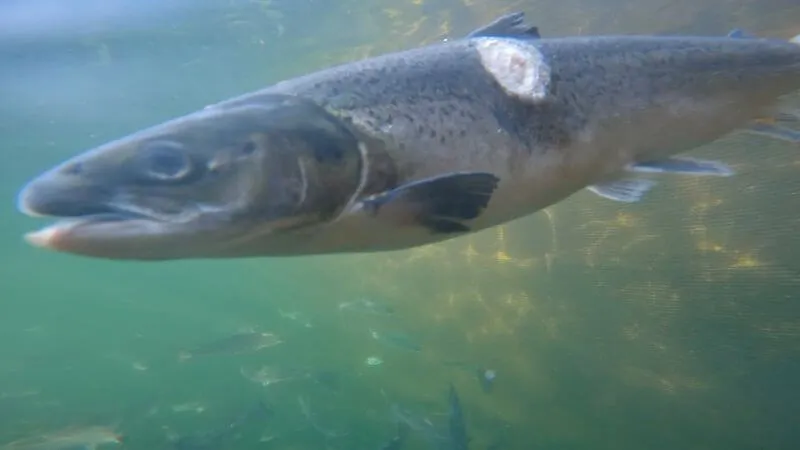
“A deeply unsustainable model”
This is certainly no cause for celebration, it’s a national scandal
-Abigail Penny, Executive Director of Animal Equality UK
If you, like us, are rightly concerned about the state of the Scottish salmon farming industry, please boycott salmon and other animal products today. You can stop the death simply by choosing plant-based alternatives instead.
Instead of addressing the undeniable systemic welfare and environmental failures, the salmon industry is ploughing ahead with aggressive expansion plans. Production increased by 27% in 2024, while the number of staff decreased by 8% . Once again, giant multinational corporations are bulldozing their way across Scotland’s coasts, prioritising profit over people, animals, and our shared environment.
Please join us in demanding that the Scottish Government puts the brakes on this industry and stops its unchecked expansion:
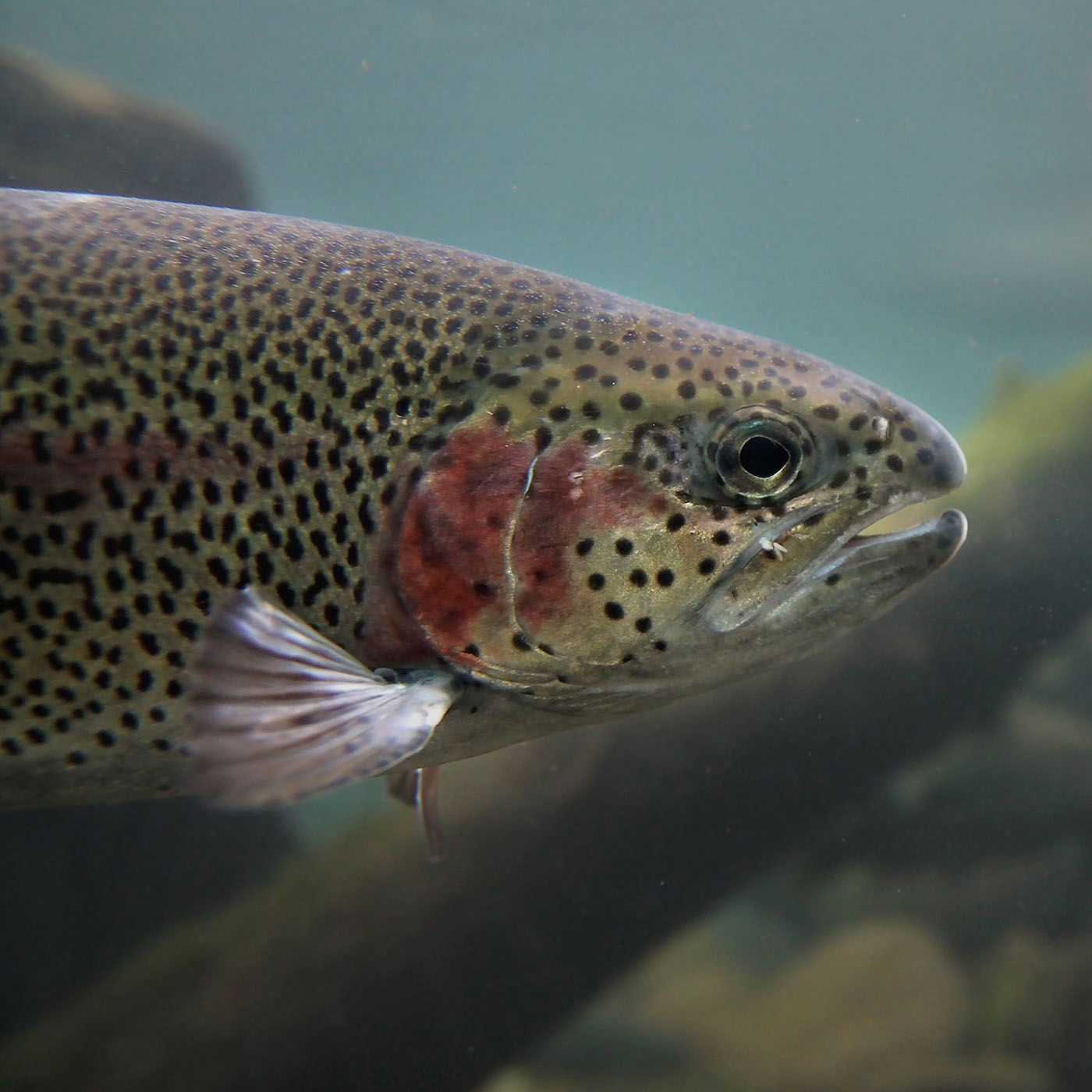
Protect Fish
Scientists confirm that fish feel pain and suffer. Protect these sensitive beings by choosing plant-based alternatives to animal food products.


